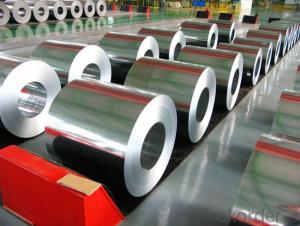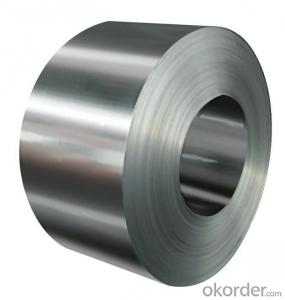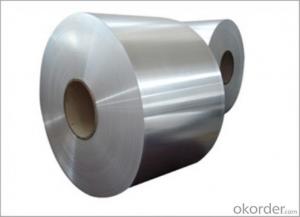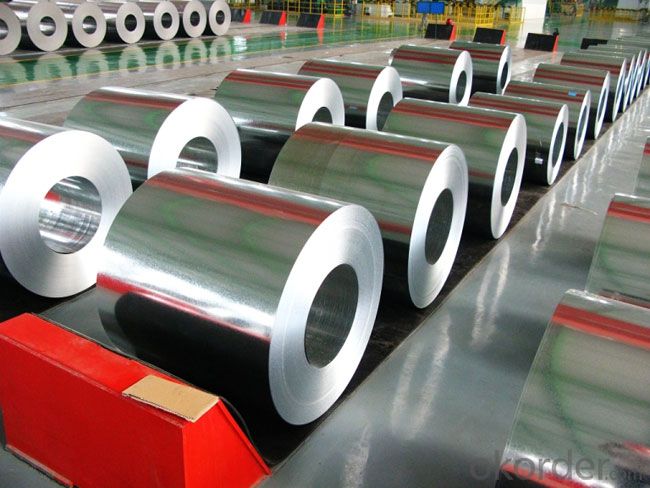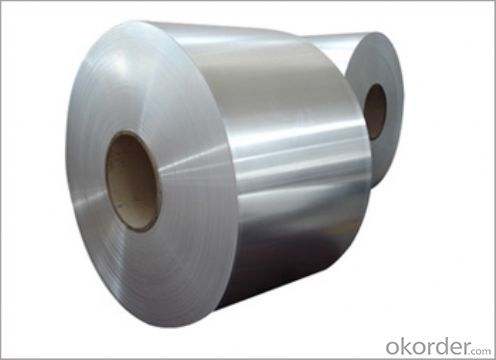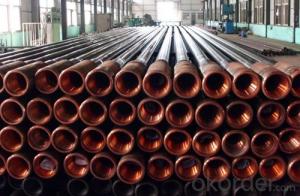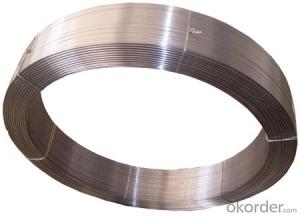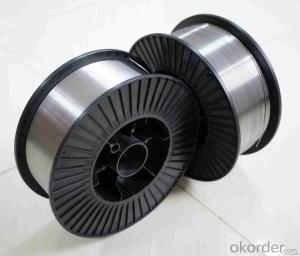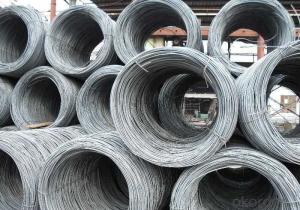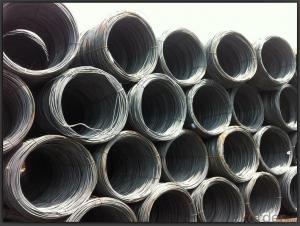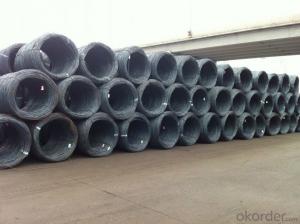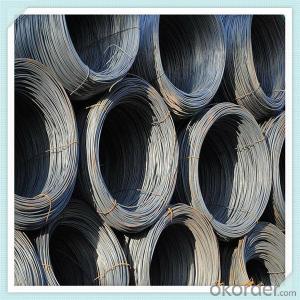Rebar Coil Wire Rod Price 5.5mm-14mm for Building
- Loading Port:
- Tianjin
- Payment Terms:
- TT or LC
- Min Order Qty:
- 100 m.t.
- Supply Capability:
- 10000 m.t./month
OKorder Service Pledge
OKorder Financial Service
You Might Also Like
Rebar Coil Wire Rod Price 5.5mm-14mm for Building
Products Description:
Type: | reinforcing bar /deformed bar /rebar coil /wire rod |
Steel Grade: | reinforcing rebar : hrb400, hrb500, gr.60 rebar coil: hrb400, hrb500, gr.60 wire rod: sae1006, sae1008,sae1012,sae1017,sae1018 |
Size: | reinforcing rebar in coil : 5.5mm-10mm . Wire rod : 5.5mm-14mm. Deformed bar :10mm-32mm. |
Length: | reinforcing rebar : 6m-12m. rebar coil:1.6-1.9Tons/coil . Wire rod: about 2Tons /coil. |
Application: | Building , bridge or project construction. |
Delivery time: | 20-30days base on quantity. |
Payment: | T/T, West Union, Cash, L/C. |
Trade term: | FOB, CFR, CIF, EXW |
Trans term: | FIO, FILO, FLT. |
Datas of Chemical Parameters:
Steel grade | C% ≤ | Si%≤ | Mn%≤ | P%≤ | S%≤ | Cr%> | Ceq≤ |
HRB335 | 0.17-0.25 | 0.40-0.80 | 1.00-1.60 | 0.045 | 0.045 | 0.3-0.4 | 0.52 |
HRB400 | 0.17-0.25 | 0.20-0.80 | 1.20-1.60 | 0.045 | 0.045 | 0.3-0.4 | 0.54 |
HRB500 | ≤0.25 | ≤0.80 | ≤1.6 | 0.045 | 0.045 | 0.3-0.4 | 0.55 |
Gr.60 | ≤0.30 | ≤0.40 | ≤1.00 | 0.050 | 0.050 | 0.3-0.4 |
WHY SHOULD YOU CHOOSE US:
Stable quality ----continous casting hot rolled production techenic, strictly quality control system.
Lower price -------Not the cheapest but the lowest price at the same quality .
Good service -----Satisfactory service within 24hours.
Delivery time ------15-25days for the mass production .
Discount---------------discount base on monthly large quantity purchase in long term.
Picture:
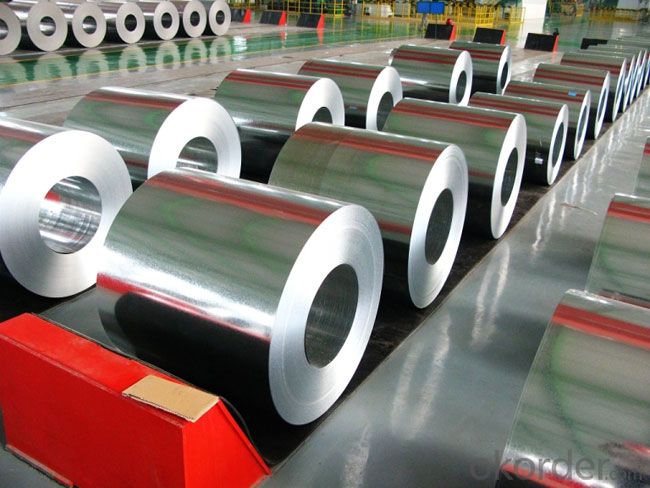
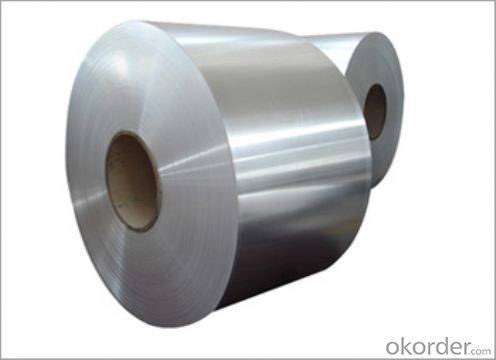
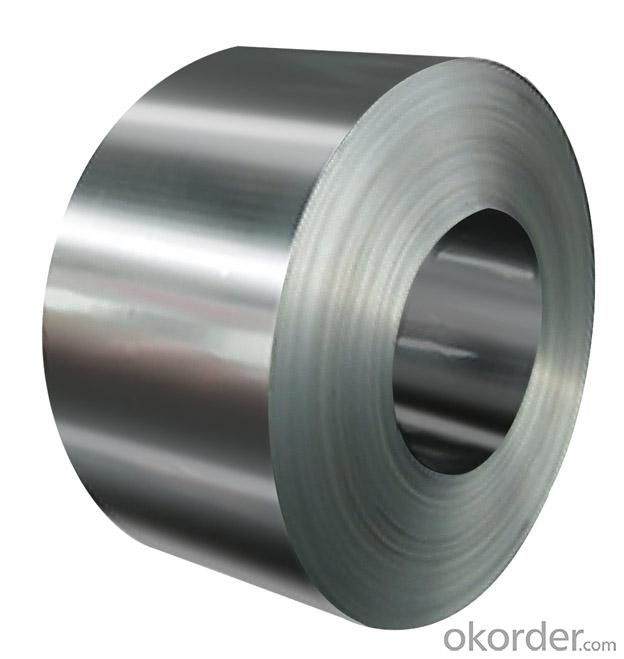
- Q: Can steel pipes be used for oil and gas pipelines?
- Yes, steel pipes can be used for oil and gas pipelines. Steel pipes are widely used for their strength, durability, and resistance to corrosion, making them a suitable choice for transporting oil and gas over long distances.
- Q: What is the average lifespan of steel pipes in different applications?
- The average lifespan of steel pipes in different applications can vary significantly depending on factors such as the type of application, the environment it is exposed to, and the level of maintenance. However, in general, steel pipes can last anywhere from 20 to 100 years or more, making them a durable and reliable choice for various industries and infrastructure projects.
- Q: How do you solder purple copper plate and steel tube?
- When the copper and copper tube size is too large, argon welder welding, DC argon arc welding machine, of course, when DC argon arc welding welding belongs to welding, argon arc welding of brass with Wei Odin 204S welding, the argon arc welding wire for gas welding is not brass wire, this concept must be clear, the wire diameter of 2 80-120A, welding current parameters, if the copper thickness is relatively thick, with a red copper welding after welding preheating in advance.
- Q: How are steel pipes used in the manufacturing of pressure vessels?
- Steel pipes are commonly used in the manufacturing of pressure vessels as they provide the necessary strength and durability to withstand high internal pressure. These pipes are welded or seamless and are often used as the main structural component of the vessel. They allow for the efficient flow of fluids or gases within the vessel and provide a reliable and secure containment system for various industrial applications.
- Q: How are steel pipes used in the telecommunications infrastructure?
- Steel pipes are used in the telecommunications infrastructure for various purposes such as underground cable installation, mounting antennas, and supporting communication towers. They provide durability, strength, and protection for the cables and equipment, ensuring reliable and efficient communication networks.
- Q: How are steel pipes used in the manufacturing of structural frameworks?
- Steel pipes are commonly used in the manufacturing of structural frameworks due to their strength, durability, and versatility. These pipes are used as components in the construction of frameworks, such as buildings, bridges, and towers, providing support and stability to the overall structure. Steel pipes are often used to create columns, beams, and trusses, which are essential for bearing heavy loads and ensuring the structural integrity of the framework. Additionally, steel pipes can be easily welded, allowing for efficient and cost-effective construction processes. Overall, steel pipes play a crucial role in the manufacturing of structural frameworks by providing a robust and reliable solution for various construction projects.
- Q: What is the hardness of steel pipes?
- The specific grade and manufacturing process can cause the hardness of steel pipes to vary. Generally, alloys are used to make steel pipes, which offer a combination of strength and toughness. To determine the hardness of steel pipes, different methods like Rockwell or Brinell hardness tests can be carried out. These tests gauge the steel's resistance to indentation or penetration using a standardized indenter. The hardness of steel pipes is usually represented as a numerical value on a scale, like the Rockwell hardness scale (e.g., HRC or HRB) or the Brinell hardness scale (e.g., HB). The hardness of steel pipes is significant as it indicates their capacity to endure physical stresses, such as pressure, impact, or wear, in various applications such as construction, oil and gas transportation, and manufacturing.
- Q: What are the safety considerations while handling steel pipes?
- When handling steel pipes, some key safety considerations include wearing appropriate personal protective equipment (PPE) such as gloves, safety glasses, and steel-toe boots to protect against potential injuries. It is important to be cautious of the weight and size of the pipes, using proper lifting techniques and equipment to prevent strains or accidents. Additionally, workers should be mindful of the sharp edges and potential for cuts or punctures, ensuring they have a clear and organized workspace to minimize the risk of tripping or falling. Regular inspections of the pipes for any damages or defects are also crucial to prevent accidents and maintain a safe working environment.
- Q: What are the different grades of steel used in pipes?
- The different grades of steel used in pipes vary based on their composition and properties. Some common grades include carbon steel (such as ASTM A106 or API 5L), stainless steel (such as ASTM A312 or ASTM A269), and alloy steel (such as ASTM A335). Each grade has specific characteristics that make it suitable for different applications, such as high temperature or corrosive environments.
- Q: What are the different types of steel pipe supports for seismic applications?
- There are several types of steel pipe supports commonly used for seismic applications, including sway braces, rigid braces, snubbers, and restraints. Sway braces are designed to absorb lateral movement and provide flexibility during seismic events. Rigid braces, on the other hand, offer rigid support and resist movement. Snubbers are used to dampen pipe vibrations and prevent excessive movement. Restraints are used to anchor and limit the movement of the pipe during seismic activity.
Send your message to us
Rebar Coil Wire Rod Price 5.5mm-14mm for Building
- Loading Port:
- Tianjin
- Payment Terms:
- TT or LC
- Min Order Qty:
- 100 m.t.
- Supply Capability:
- 10000 m.t./month
OKorder Service Pledge
OKorder Financial Service
Similar products
Hot products
Hot Searches
Related keywords
